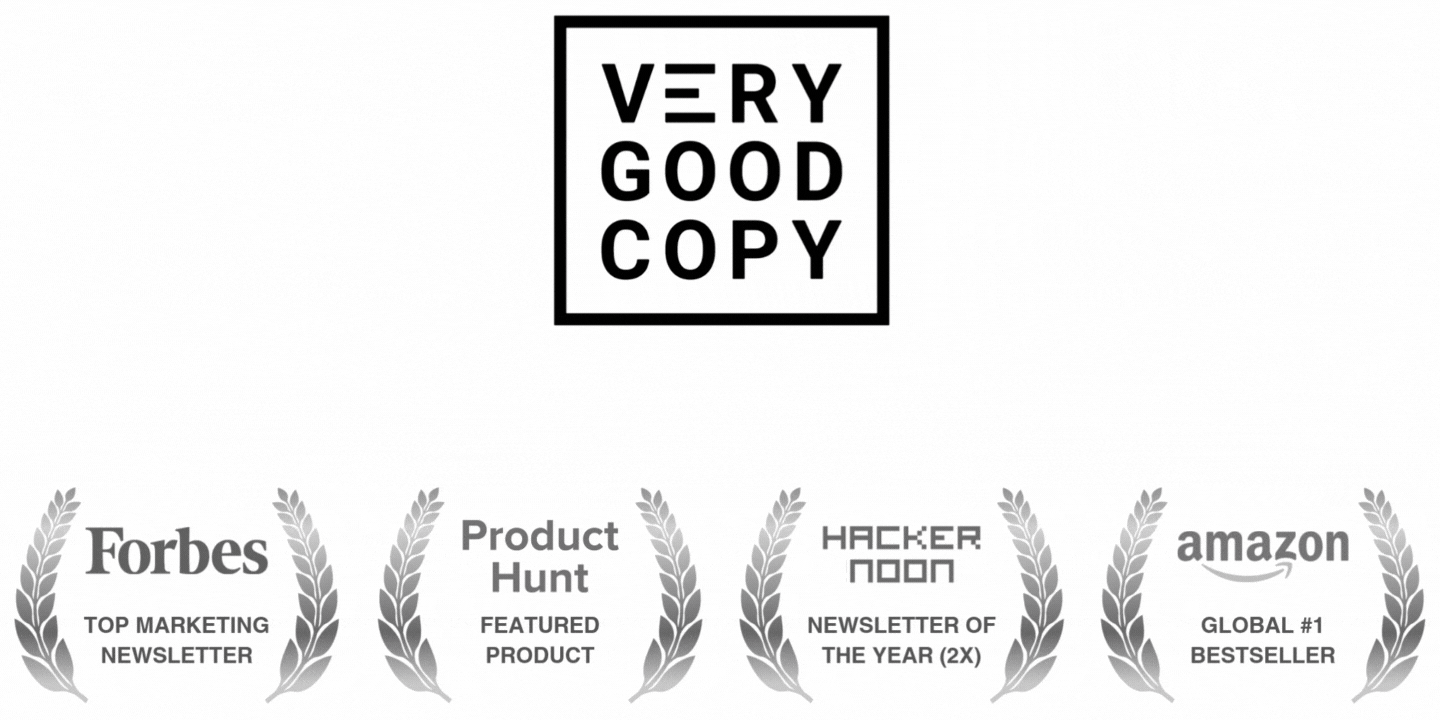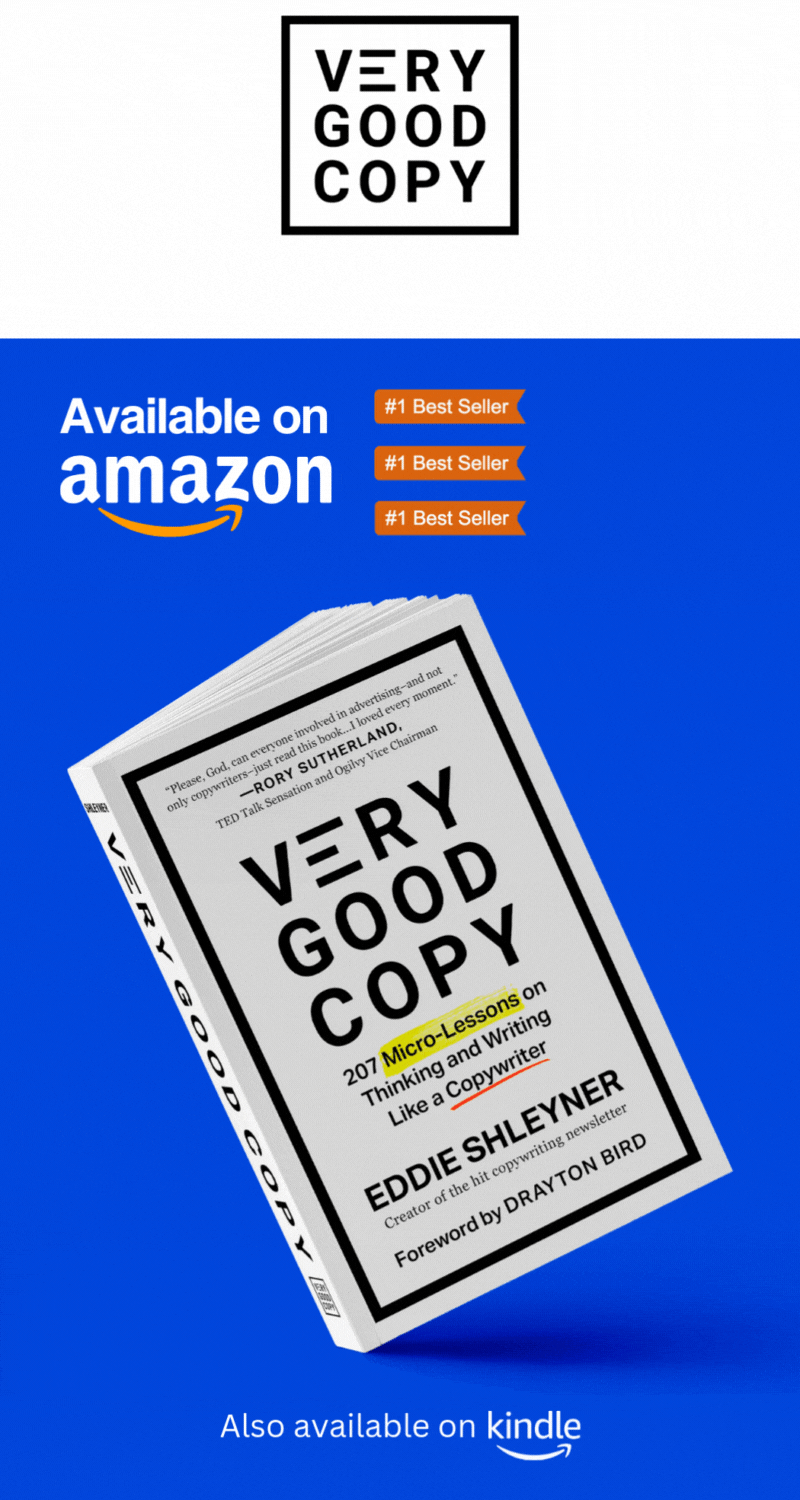EDITOR’S NOTE:
Gill Andrews is a conversion copywriter and web consultant based in Germany. She’s also the author of Making Your Website Work, an excellent guide for anyone who wants a better website.
I’ve been following Gill for years, on LinkedIn, on Twitter. And now I’m very proud to have her on for a Micro-Interview.
In 562 words, Gill shares:
How to handle writer’s block…
How to reach your professional goals faster…
How to remember and internalize the articles you read…
And more…
Instantly get 6 “micro” courses and series about copywriting when you subscribe to the VeryGoodCopy newsletter for free. Plus...enjoy new content every week. Learn more →
Thank you, Gill.
Let’s get started:
1) “What’s your work routine?”
My day starts with dropping my son off at kindergarten. I’m back at my desk by 9 am, but it takes me at least half an hour of hanging out on social before my brain is fully awake. Then I do whatever requires me to be in my best mental shape.
Usually, it’s a website review or new copy. I close all the tabs, put on noise-canceling headphones and work till about 12 o’clock. Then, I have my breakfast and watch a couple of work-unrelated YouTube videos to give my brain a break.
After that, I work till about 3 pm when I have to go pick up my son. That’s when family life takes over.
At about 9 pm, when we’ve had dinner and my son is asleep, I get to my desk to answer emails or plan a post on social but try not to do any client work.
That would describe a successful day. Yet, there are also days where I feel unable to produce a single coherent sentence. If I’ve been sleeping too little for many days in a row or if there’s something else on my mind, for example.
Then, I don’t force it and try to recharge. I do whatever brings me joy or just go back to bed and sleep for 4 hours straight.
2) “What do you know about your work now that you wish you’d known when you first started?”
That I needed an office — a separate room with a door I can shut on my way in, as a sign to my family that I’m currently working and shouldn’t be disturbed and on my way out, as a sign to myself that the work day is over and I should switch off.
Still waiting for that to happen working from a kitchen table.
3) “What did your biggest professional failure teach you?”
To never assume anything and always set clear expectations as to what I can and cannot do for a client.
Also, to never work together as a team with someone you don’t trust to do a good job.
4) “What’s the #1 thing that has helped you shorten your craft’s learning curve?”
My formal education (math, computer science, 4 foreign languages) taught me how to approach complex problems and learn new skills fast.
My work experience (IT consultant) taught me the basics of project management and what really matters when working with clients 1:1.
5) “What book has helped you the most over your career?”
Probably none.
I have several famous business books sitting unfinished in my Kindle, because nothing new or practical came after the first couple of chapters.
What helped me most were in-depth articles on something I could apply to my work right away. I spent hours reading them while taking hand-written notes.
6) “And your parting piece of advice?”
Want to reach your professional goals faster?
Find a person who represents someone you’d like to be “when you grow up” — someone who achieved what you want to achieve doing things you’d like to do the way you’d like to do them — and stalk them online (secretly, of course).
Read everything they write to learn more about their work process. Watch how they market themselves. That’s your blueprint. And it won’t only work for your business. It will also fit your personality and beliefs.





